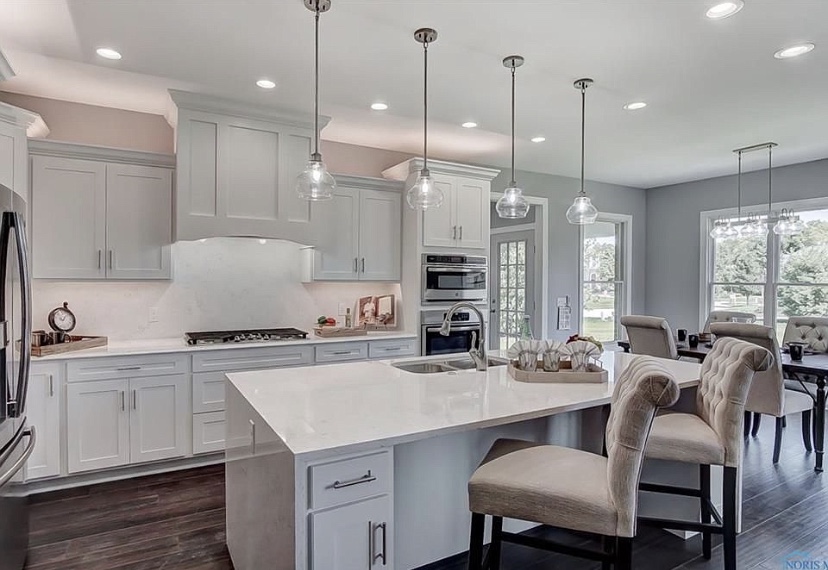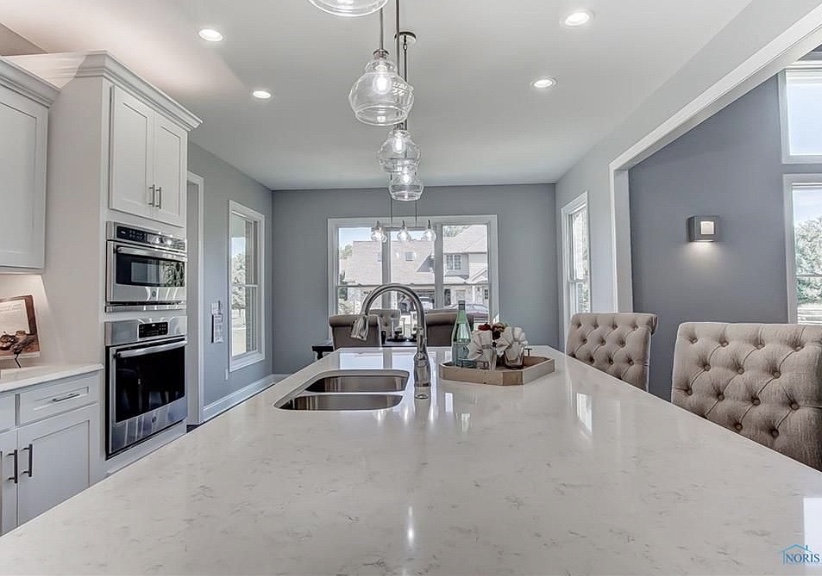
Trends change all the time, be it fashion or cars or kitchens, but some things are easier to change with the times than others. It is relatively easy to buy new clothes or a new car, but if your kitchen countertops are outdated, you often need to renovate your entire kitchen and not use it for days or weeks.
All of this only increases the need to get ahead of these sorts of trends and ensure that you get as much longevity out of them as possible. It might then behoove you to know that quartz countertops are on track to become the next big design trend in kitchen decor. This article is here to tackle why that is and how you can be on the cutting edge of the trend.
1. Quartz Is Beautiful
This is a simple point and possibly somewhat subjective, but it is a common sentiment for many people.
The type of quartz used in countertops is not mined out of the ground or “natural quartz.” Instead, the quartz comprising your new countertop is called “manufactured quartz.” Manufactured quartz is made in a lab and poured into a mold shaped to your countertop’s dimensions. In so many words, these countertops can be wherever you want them to be.
Quartz countertops are notorious for their sheer range of colors and designs, stemming from the fact that they can be custom made or mass produced at relatively low costs to other materials. This is a countertop that twinkles in the sunlight instead of shines. It can be made to match the existing colors of a kitchen rather than requiring a complete renovation. Anything you want, you can do.
2. Quartz Adds Value to Your Home
What happens when people think something is trendy and looks good? They are willing to pay more for it. Quartz is the perfect renovation for people interested in flipping houses or trying to sell theirs because it is relatively inexpensive and adds significant value to your home. Quartz countertops also hold their value for longer than other materials due to their high durability.
By some estimates, sellers may expect an additional $80 to $140 per square foot of quartz countertop over the cost of granite of the same dimensions. Popularity pays well, and both of these options represent the most hotly desired countertop materials on the market right now.
An additional facet of it adding value to your home is the lack of maintenance quartz requires compared to other countertop materials. Manufactured quartz is generally nonporous, meaning it does not hold smells or food residue the same way concrete or granite would. You do not need special chemicals to clean quartz, but you also will not damage your countertop if you choose to use them. No matter what, your countertop will sparkle on for decades.

3. Quartz Is as Durable as It Gets
The comparison to granite is also appropriate for other reasons. Quartz is a notoriously stable crystal when it occurs naturally, and that is accounting for impurities. Manufactured quartz has a hardness comparable to diamonds, owing to a similar cellular structure. It is sometimes even used as a substitute for them in jewelry.
What this means for countertops is that you have something almost impossible to scratch or chip without meaning to. It will not be scuffed by moving appliances or accidental slips of a knife. Quartz is so hard that it is very seldom cut into shape for a counter but poured into a mold where possible. Of course, it is possible to cut quartz, but it requires special tools, and even then, the work is slow.
This relates to the earlier point about it adding value to a home. Quartz, like diamonds, is forever. You have no reason to worry about it degrading or chipping from age and use. It will always look about the same no matter what it goes through.
4. Quartz Is Environmentally Sustainable
So quartz is easier to maintain and harder to damage, and does it all while looking good, how could it possibly get any better? Quartz happens to also decrease your carbon footprint just by using it over other countertops. This is because manufactured quartz is made almost entirely from the scraps of other stone and stone-like products.
Manufacturers of quartz products use materials such as rock slag and other debris to make their products, and they require minimal transportation or extraction of raw materials. Furthermore, none of the manufactured quartz materials go to waste while making quartz. They take recycled materials and recycle all of their own; a more eco-friendly system is not possible.
